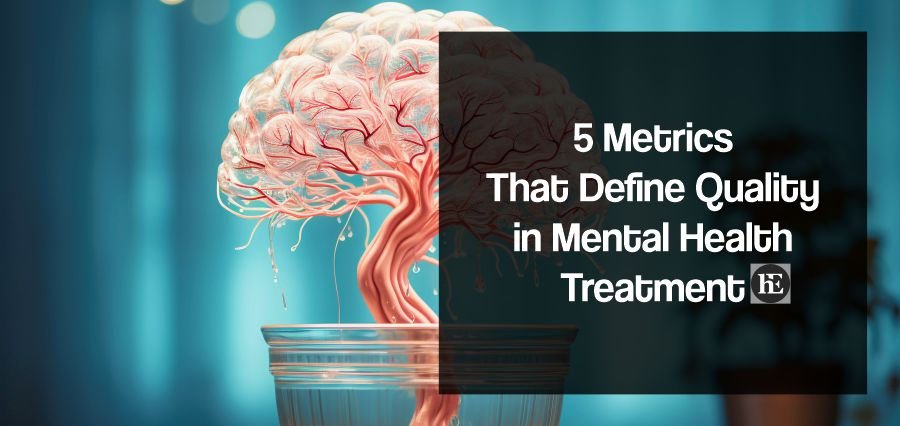10 Exciting Tech Trends Revolutionizing Healthcare in 2024
In the ever-evolving realm of healthcare, technological advancements are driving transformative changes. As we step into 2024, ten exciting trends are poised to revolutionise the industry. From the integration of artificial intelligence (AI) in diagnostics to the expansion of telemedicine, these innovations are reshaping the way healthcare is delivered and experienced.
Embracing these advancements holds the promise of improved patient outcomes, enhanced accessibility, and a more efficient healthcare system overall. Let’s delve deeper into these trends and explore how they are shaping the future of healthcare in the present year and beyond.
Artificial Intelligence (AI) in Diagnostics
AI is transforming diagnostic processes, enabling faster and more accurate assessments. Advanced algorithms analyse medical images, detect abnormalities, and assist radiologists in making informed decisions. With AI, healthcare providers can detect diseases earlier, leading to more effective treatments and improved patient outcomes.
Telemedicine Expansion
Telemedicine has experienced a significant surge, especially in remote areas where access to healthcare is limited. Through virtual consultations, patients can connect with healthcare professionals from the comfort of their homes. This expansion of telemedicine is improving accessibility to healthcare services and reducing unnecessary hospital visits.
Blockchain for Secure Data Sharing
Blockchain technology is revolutionising data management in healthcare by providing a secure and transparent platform for sharing sensitive information. Patient records, clinical trials, and medical supply chains can be securely stored and accessed, ensuring data integrity and privacy. Blockchain is enhancing trust among stakeholders and streamlining administrative processes.
Internet of Medical Things (IoMT)
The IoMT encompasses a network of interconnected medical devices and sensors that collect and transmit patient data in real time. These devices, ranging from wearable fitness trackers to implantable monitors, enable continuous monitoring of vital signs and early detection of health issues. IoMT devices empower patients to take control of their health and enable healthcare providers to deliver personalised care.
Robotics in Surgery
Robotic technology is revolutionising surgical procedures, allowing for greater precision, flexibility, and efficiency. Surgeons can perform minimally invasive surgeries with enhanced dexterity and control, leading to shorter recovery times and reduced complications. Robotics in surgery is advancing patient care by pushing the boundaries of what is possible in the operating room.
3D Printing of Medical Devices
3D printing has emerged as a game-changer in healthcare, facilitating the customisation and rapid prototyping of medical devices. From prosthetics to implants, 3D printing technology is revolutionising the way medical equipment is designed and produced. This innovation is improving patient comfort, reducing costs, and increasing accessibility to essential healthcare resources.
Augmented Reality (AR) and Virtual Reality (VR) in Training and Therapy
AR and VR technologies are transforming medical training and therapy by providing immersive and interactive experiences. Medical students can simulate surgical procedures and explore anatomical structures in a realistic virtual environment. Additionally, AR and VR are being used in therapy sessions to alleviate pain, reduce anxiety, and improve patient outcomes.
Precision Medicine
Precision medicine is revolutionising healthcare by tailoring treatments to individual patients based on their genetic makeup, lifestyle, and environmental factors. Advanced genomic sequencing and data analytics enable healthcare providers to identify targeted therapies that are more effective and have fewer side effects. Precision medicine holds the promise of personalised healthcare that is truly tailored to each patient’s unique needs.
Healthcare Chatbots
Chatbots are becoming increasingly prevalent in healthcare settings, providing patients with instant access to medical information and assistance. These AI-powered virtual assistants can schedule appointments, answer common medical questions, and provide medication reminders. Healthcare chatbots are enhancing patient engagement, reducing administrative burdens, and improving the overall healthcare experience.
Cybersecurity Measures
With the increasing digitisation of healthcare systems, cybersecurity has become a top priority. Healthcare organisations are implementing robust cybersecurity measures to protect patient data from cyber threats and breaches. Encryption, multi-factor authentication, and regular security audits are essential components of a comprehensive cybersecurity strategy. By safeguarding patient information, healthcare providers can maintain trust and ensure the integrity of their systems.
Conclusion
In conclusion, the future of healthcare in 2024 is undeniably intertwined with technology. The ten trends highlighted here signify a paradigm shift in the industry, offering unprecedented opportunities for innovation and improvement. By harnessing the power of AI, telemedicine, blockchain, and other cutting-edge technologies, healthcare providers can deliver more personalised, efficient, and accessible care to patients worldwide.
Embracing these advancements not only enhances patient outcomes but also strengthens the foundation of healthcare systems, paving the way for a healthier and more resilient future. As we continue to navigate the complexities of healthcare delivery, these trends serve as beacons of progress, guiding us towards a brighter tomorrow.
Latest Article
-
 Fenugreek Benefits and Uses: Blood Sugar, Hair, Hormones GuideArticle
Fenugreek Benefits and Uses: Blood Sugar, Hair, Hormones GuideArticle -
 11 Questions Life Coaches Ask That Change How You ThinkArticle
11 Questions Life Coaches Ask That Change How You ThinkArticle -
 8 Real Benefits of Life Coaching That Go Beyond MotivationArticle
8 Real Benefits of Life Coaching That Go Beyond MotivationArticle -
 Blaze Schwaller: For Every Person Who Has Ever Felt Too Much, Too FastArticle
Blaze Schwaller: For Every Person Who Has Ever Felt Too Much, Too FastArticle -
 5 Metrics That Define Quality in Mental Health TreatmentArticle
5 Metrics That Define Quality in Mental Health TreatmentArticle
